An insight into Waterways Chaplaincy
Baptist minister Chris Upton is the national lead for Waterways Chaplaincy, an independent ecumenical charity that oversees the ministry of around 100 chaplains along the canals and rivers of the UK.
Being a chaplain helps church members to grow and deepen their understanding of how God cares for the margins, he explains, and is a way of opening up the ‘sacred’ to and with people who have little intention in attending ‘sacred buildings’
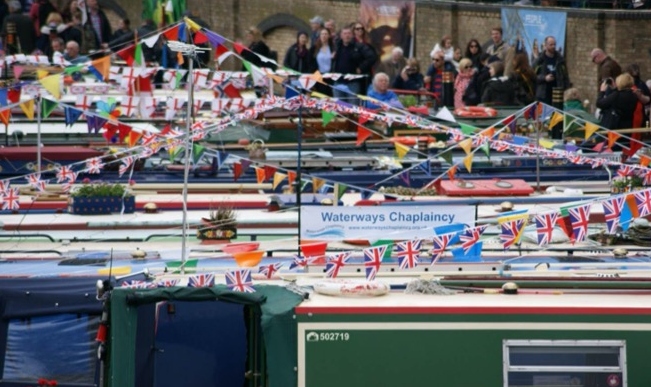
“Believe me, my young friend, there is nothing –absolutely nothing–half so much worth doing as simply messing about in boats.”
Kenneth Grahame, The Wind in the Willows
I am the national lead for the Waterways Chaplaincy… did you know there was such a thing?
We are an independent ecumenical charity within the family of the Church Army, and our distinctive focus is in reaching out to people in need on our rivers, canals, and inland navigable waterways. We support boaters in need (and anyone else that we come across) of all faiths and none.
Rather like street pastors, waterways chaplains proactively go out to serve others, but we do it for the 2000+ miles of navigable waterways that crisscross the UK. Our chaplains wear highly visible gilets with the chaplaincy name and logo proudly displayed.
By building and maintaining relationships we help to decrease an often pervasive feeling of isolation, and we can often come alongside folk and help them sort out quite involved issues, such as boat licensing problems, benefit claims, or dealing with the NHS/local councils when a boater doesn’t have a postcode.
This often leads to a slow transformation in people's lives as they come to understand again that they are not alone, that somebody cares and that they are loved.
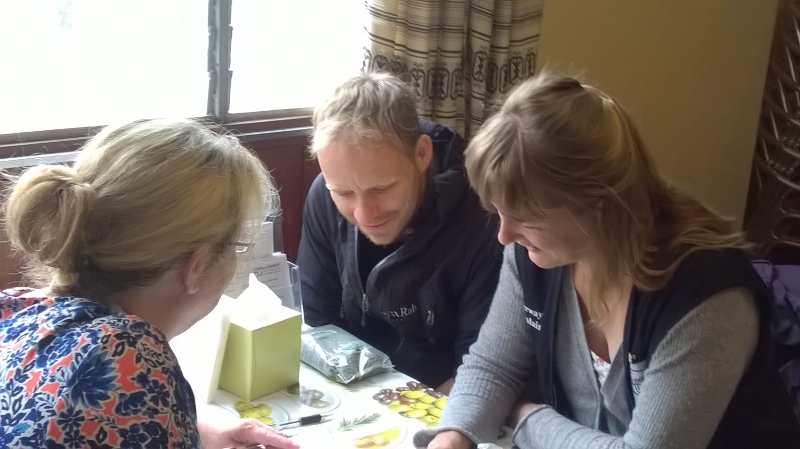
Chaplaincy ministry varies across different sectors. Historically, chaplaincy and chaplains brought church to people who could not otherwise attend (think army, hospital and prison) but increasingly I think that chaplaincy is a way of opening up the ‘sacred’ to and with people who have little intention in attending ‘sacred buildings’.
As David Tacey puts it,
“The world has replaced church as the consecrated vessel of the divine…. and religiousness is no longer synonymous with attending holy places on holy days, but cultivating an awareness of the presence of the holy in creation, and becoming attuned to it as a discipline of mind and behaviour (sic)”[1].
If Tacey is right, and I think he is, then the decline in UK church going (which happened at roughly the same time that the UK canals began to fall into disrepair) is not something to be feared but simply the outworking of a changing society that is causing a changing spirituality.
The canal network is not going to regain its former glory and status, and dare I suggest neither is the church? In keeping with this thought, in his address to the Anglican Chaplaincy network, Archbishop Cottrell ruminated on the vital place of chaplaincy and was clear that “in many ways… the future of the church (of England) belongs to chaplaincy”, and that networks rather than neighbours are the future[2].
As I walking along a towpath that used to be at the very heart of Britain’s industrial core, I often see ghosts of former times. I am drawn to reflect on how what was once so unquestioningly central to UK life, is now preserved and overseen by relatively few enthusiasts, but how it still provides solace to around 6 million people a year as they live and walk and enjoy the peace that is there. Ring any bells?
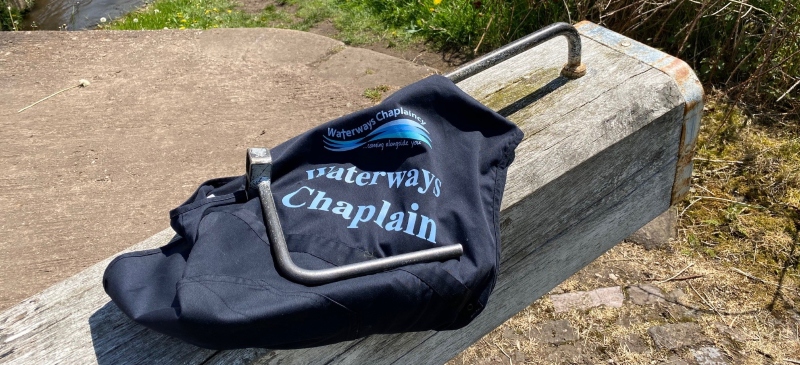
Three stories - a window into our work
On our website we have a ‘Contact us’ form, and this is used by statutory authorities and member of the public. Three simple examples might give a window into our work.
From a Canal and Rivers Trust licence support officer:
Hi there WWC, this gentleman is 55 and currently receiving surgery and treatment for skin cancer. Currently unable to move his boat and so unable to fill water tank. Struggling emotionally and with his mental health and depression as he is quite isolated. Could do with any support available.
He was referred to me by his GP who is based in London but there is a limit to the support that I can offer from so far away. Could you get a chaplain to pop in on him?
From a boater:
Hi. I was wondering for a bit of help as I’m struggling to afford my boat and not sure about what to do.
From a family member:
Good evening. My sister and I are growing increasingly worried about our father who has been out of touch since end of December. He is in his 80s and lives on his canal boat and has insulin dependent diabetes. His last communication was on 30 December and he mentioned he was going down with a cold and should pop out to buy fresh groceries before illness restricts his ability to venture out.
We can view his bank account and he has not made any payments using his debit or credit cards since purchasing his return train ticket. He has an iPhone and an iPad but both are not responding. We wonder if you might have a chaplain in the local area who would be in a position to track down his boat and check up on him please?
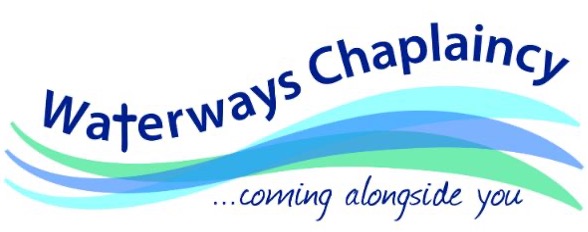
As mentioned above, I see parallels between the UK canal network and the wider church. I also see the Waterways chaplaincy as a useful space for church members to grow and deepen their understanding of how God cares for the margins. This is summed up by an ordinand who undertook a placement with Waterways Chaplaincy.
I will be forever grateful to WWC for enabling me to spend my chaplaincy placement with them on the banks of the English canals.
The ecumenical chaplains enabled me to see how very different life is on the waterways. Everyone can see the beauty in the surroundings and the slower pace of life, but not many see the daily struggle that life can become for those who live here because there is nowhere else to go.
The experience I gained with the WWC will benefit my future ministry enormously as I will always now not only look along a towpath when near a canal, but also look for people who live on the fringes of society even if they ‘live’ in the midst of a busy town.
We have around 100 Waterways chaplains at the moment, but we need many more to help us help others. If you would like to find out more then please get in touch.
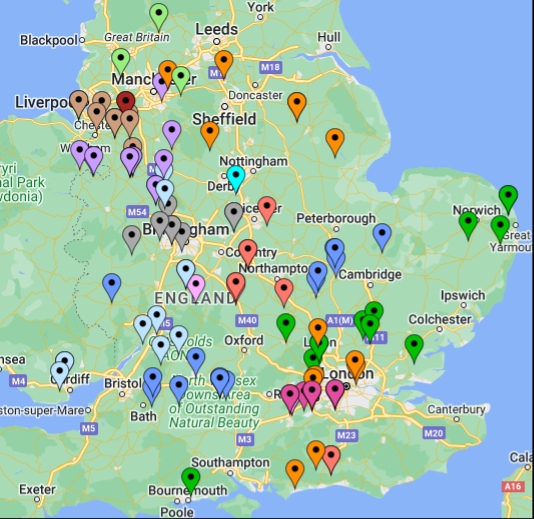
Map of where Waterways chaplains are
[1] Tacey, D.,2014, ‘Ordinary Sacred World’, Meditatio Newsletter, September, pp7-8
[2] youtube.com/watch?v=WbfP8amSSBc&t=1937s
Do you have a view? Share your thoughts via our letters' page.
Baptist Times, 16/04/2024